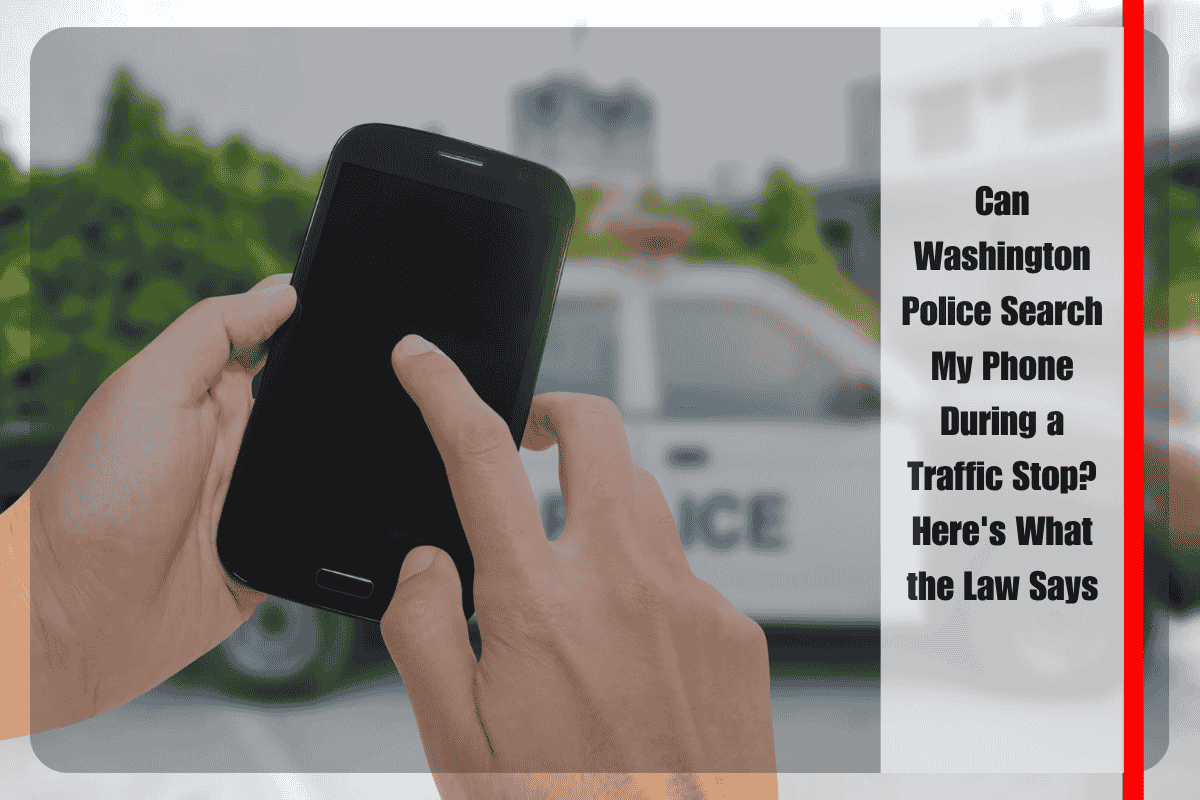If you’ve ever been pulled over during a traffic stop in Washington state, you might wonder whether police officers have the right to search your phone. With smartphones storing so much personal information, from messages and photos to apps and banking details, it’s understandable to be concerned about privacy. In Washington, as in many other states, the law surrounding phone searches during traffic stops is complex, but there are key points to keep in mind.
First, it’s important to understand that police officers in Washington cannot search your phone during a traffic stop without your consent or a warrant. The Fourth Amendment of the U.S. Constitution protects you from unreasonable searches and seizures, and this extends to your phone. Just as police cannot search your car without a valid reason or your consent, they also cannot search your phone unless they meet certain legal criteria.
There are exceptions, however, that could allow law enforcement to search your phone without a warrant. One of the main exceptions is if they believe the phone contains evidence related to a crime and they have probable cause. For instance, if officers have reason to believe that the phone is related to criminal activity, such as texting while driving, driving under the influence, or a more serious crime, they may be able to search the phone. Even then, this usually requires a warrant, unless there’s an emergency situation where the officer can argue that delaying the search could result in the destruction of evidence.
Another situation where a phone search could occur is during an arrest. If you are arrested during a traffic stop, police may be able to search your phone as part of the arrest process. However, this is typically limited to the immediate area within your control, and any digital evidence on your phone still requires a warrant unless there are specific circumstances, such as consent or an exigent situation. Washington state law follows similar procedures as federal law, which means that, unless there’s consent or a specific exception, officers must obtain a warrant before accessing your phone’s data.
It’s also important to note that while police cannot generally search your phone during a traffic stop, they may still seize it for evidence preservation. If they suspect the phone is connected to criminal activity, they may take it and apply for a warrant to search it later. During this process, they must follow the necessary legal steps, and any evidence gathered improperly can be challenged in court.
In Washington, the law also makes clear that officers need a warrant for more intrusive searches of digital information. In 2014, the U.S. Supreme Court ruled in Riley v. California that police need a warrant to search the digital contents of a phone during an arrest, marking a significant decision in terms of privacy and digital rights. Washington state adheres to this principle, and police must respect these protections unless they have consent or an emergency situation.
If an officer asks to search your phone during a traffic stop in Washington, you have the right to decline. If you are unsure about your rights in a specific situation, you can politely refuse to consent to a search and ask if they have a warrant. Officers may try to persuade you, but remember that you are under no obligation to allow them to search your phone without a valid legal reason.
While Washington police do have the authority to seize your phone in certain circumstances, such as during an arrest or if they have probable cause to believe it contains evidence of a crime, they cannot search it during a traffic stop without your consent or a warrant. Your digital privacy is protected by the Fourth Amendment, and if you feel that your rights have been violated, you may have legal options to challenge the search. Always know your rights and understand the legal limits of police authority when it comes to phone searches.
Sources
[1] https://www.washingtonpost.com/technology/2024/10/08/can-police-search-your-phone/
[2] https://www.tromboldlaw.com/blog/can-police-in-washington-legally-search-your-phone/
[3] https://mcaleerlaw.net/your-phone-as-evidence/
[4] https://www.govtech.com/public-safety/can-police-search-your-phone-during-a-traffic-stop
[5] https://www.aclu-wa.org/docs/what-do-if-you-are-stopped-police-0












